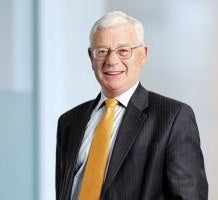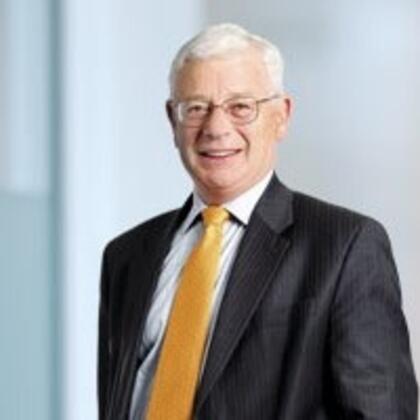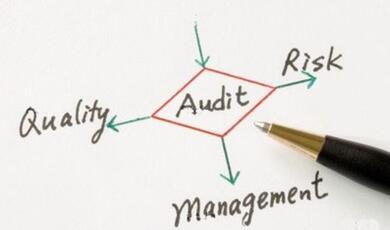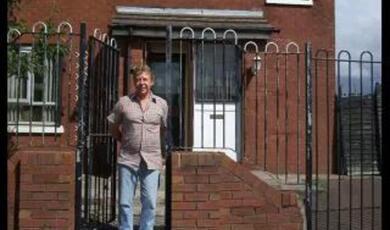Britain's Relations with Korea: A Personal View
Share
- Details
- Text
- Audio
- Downloads
- Extra Reading
Sir Thomas Harris has a long and distinguished career in the Diplomatic Service, but nothing tested his skills more than the years he spent as British Ambassador to South Korea. In this lecture he reflects upon Britain's relations with Korea and gives a personal, but very learned, view of this key partner.
Download Text
27 June 2014
Britain’s Relations with Korea:
A Personal View
Sir Thomas Harris KBE CMG
It was a great honour to have been invited, to deliver this Gresham College Lecture as part of the City of London’s 2014 Festival.
It means a great deal to me, not only because of the distinguished list of previous lecturers, but because in 1956 I won a Middlesex County Scholarship to attend Mercers’ School. At that time, this was the only school within the boundaries of the Square Mile. The school no longer exists, but it was then located in some rather cramped buildings immediately behind this hall, Barnard’s Inn, one of the old Inns of Court. Our playground was a bomb-site left over from the war. The premises have been occupied by Gresham College since 1991. This part of the Barnard’s Inn has not changed under the new ownership. I can still vividly recall waiting in this hall before being ushered into the Headmaster’s study next door to be interviewed for entry by the then Headmaster, Mr Haden.
Another coincidence was that, once in the school, I was placed in a House named Gresham after the Lord Mayor of London in 1537/38. He was the great benefactor who provided the money which, even today, endows the work of Gresham College. At the very early age of 11, therefore, I knew all about one of London’s most successful Lord Mayors. Not many others from my generation, I assure you, knew the name of Thomas Gresham.
But my first awareness of Korea came even earlier. I can date almost exactly the time when I first heard about the Hermit Kingdom. It was six years earlier when the Korean War broke out and the dinner ladies in my primary school chided any child who wasted food by reminding them of all the starving orphans in Korea. I could never work out quite how finishing my plate would help my contemporaries in Korea but it certainly left an indelible awareness of that remote country on the other side of the world.
Given the scale of British military participation, and the loss of life, the Korean War made surprisingly little impact on the British public of the 1950s. Perhaps it was the absence of live television coverage, or the fact that the British became distracted by the Coronation of their new Queen, but the truth, as many Korean War veterans will testify, is that it became the forgotten war. Those 82,000 British reservists and National Servicemen, who fought so gallantly in Korea, came back to a country which was really not very interested in what they had achieved. Nobody who has ever walked among the British graves in the UN Cemetery in Pusan will ever forget the sacrifices those more than a thousand young men made so far from home. These were losses far greater than anything we have seen over the last decade in Iraq and Afghanistan. Shamefully no war memorial was erected in London. It took an initiative from the Korean Government before last November’s State Visit by the Korean President to see her undertake the ground breaking of a Korean War Monument which will be erected outside the Ministry of Defence, alongside the Embankment.
It is difficult for today’s youngsters to realise just how remote East Asia was to my generation. Even when I was at university, there were no direct flights to Japan or Korea, let alone China. There was no internet access. Hardly any Koreans lived in Britain or British in Korea and there were certainly no Korean restaurants, films or cultural events. My first visit to that region was in 1966 when I received a travel scholarship from my college in Cambridge which allowed me to travel to Japan via the Trans-Siberian Railway. I spent that summer in Japan and vividly recall meeting some American Peace Corp workers who had been in Korea. The country, they told me, was a bottomless pit for US aid. Between 1953 and 1961, America gave approximately $2 billion in aid to South Korea, around 10 per cent of GDP. Per capita incomes were lower than in Ghana or Sudan and nothing seemed to get the economy going. Even North Korea was growing more rapidly. They were deeply pessimistic about the future for South Korea.
The fact is that Britain’s relations with Korea at that time were tenuous. Although formal diplomatic relations were first established in 1883, unlike most other parts of Asia, Korea had largely escaped the impact of British imperialism in the nineteenth century (other than a curious episode in 1885 when, without a by your leave, we seized a Korean island, Kommundo and converted it into a naval base, Port Hamilton, for a couple of years while we prepared for a possible war against Russia.) When Japan occupied the Korean peninsula, Britain did virtually nothing to protest. It saw Japan as a strategic ally in the region until, under US pressure, the Anglo-Japanese Treaty was revoked in 1923. Korea was left to suffer from fairly brutal Japanese colonial rule until 1945. By the 1930s, the Japanese were ruthless in expelling such few British companies who had invested in the peninsula, and, of course, the Korean War did not encourage many UK firms to try to re-enter the market after independence. Our British presence in Korea took the form of a token military presence in the UN Forces. But, essentially, Korea was part of the American sphere of influence and very remote from UK. foreign policy concerns.
When I finally visited Korea itself in the 1970s, as a young trade official, that situation had changed quite dramatically, and almost by accident. President Park Chung-Hee had asked Chairman Chung Ju-Yung of Hyundai in 1971 to build a shipyard at Ulsan, then a small fishing village, so that Korea could begin to emulate Japanese industrial prowess. Understandably, Chairman Chung first approached the Japanese shipyards for technical and financial assistance. He was given a dusty answer. He scoured the world looking for a partner, and quite unexpectedly, he found the solution to his problem in Britain. The Appledore Shipbuilding Company in Devon agreed to help design his new shipyard; ECGD and Lazards provided the finance for the first ship Hyundai built, a Greek tanker; and scores of British maritime engineers suddenly appeared in Korea to help get the project off the ground. That was the start of what is now the world’s largest shipbuilding industry.
Boosted by this experience, Chairman Chung Ju-Yung again turned to the UK a few years later to help him launch Korea’s first automobile factory. He recruited George Turnbull from British Leyland and received invaluable technical help from British component manufacturers to launch his first model, the “Pony”. The Japanese were scornful, and unhelpful. The British were only too pleased to help the Koreans. Little did they realise that they were laying the foundations for one of the world’s greatest car industries.
Thus, the 1970s saw an explosion in UK-Korea commercial relations. GEC helped build Korea’s first nuclear power station at Kori. British banks began to open up in Seoul and for the first time a large number of UK firms began to visit the market. We created a UK-Korea Economic Cooperation Council and British Ministers, again for the first time, began to visit Seoul on a regular basis.
For me, this was the turning point in Britain’s bilateral relations with Korea. These were no longer focused solely on political and military ties. For the first time, large numbers of ordinary British people began to conduct business in Korea and, as the Miracle of the Han gathered pace, so the number of Korean students, academics and business representatives living in the UK began to grow to serious numbers.
Chairman Chung, and his brother Se-Yung, became very close and hospitable friends of Britain and UK business delegations to Seoul were frequently entertained at lavish Kisaeng parties. (Kisaeng being roughly the Korean equivalent of a Japanese Geisha). As you can imagine, these events were extremely popular and much looked-forward to until, in 1978, the then Secretary of State for Trade, suddenly got up in the middle of dinner and walked out with his private secretary. Nobody knows exactly what his Kisaeng girl had done to him but the embarrassment on both sides was mortifying. Needless to say, that was the last of the UK-Korea kisaeng parties in Seoul and, somehow, the momentum in bilateral trade relations slowed considerably over the next decade.
By the time I returned to Korea again, in 1994, as a British Ambassador, the state of the Korean economy had been completely transformed. By then, Korea’s economy had joined the rest of the world. Years of double digit economic growth had replaced the refugee squatter camps I recall from my first visits to Seoul, with a vibrant modern city and a new generation of young South Koreans who had only the most distant memories of what their parents had gone through. Two thirds of Koreans had been born after the Korean War.
My very first VIP visit from London was, appropriately given the City of London’s Festival this year, the then Lord Mayor of London, Sir Paul Newell. He threw himself into a strenuous programme of calls and subsequently became a long-term friend and supporter of Korea in this country. But, for me, his most important meeting was with the Mayor of Seoul who told us that the city would be celebrating the 800th anniversary of its foundation the following year. That triggered an idea. The next year we organised a major programme of events designed to promote British business, education, tourism and science. We called it “Britain Salutes Seoul 800”. I promise you it sounded better in Korean. Michael Heseltine came out to launch the programme which proved to be a great success.
Indeed I was lucky in the timing of my spell as British Ambassador. My 3 ½ years stint coincided with unrelenting economic growth and prosperity. The number of Korean students studying at Korean universities quadrupled. The volume of bilateral trade more than doubled. University and research links exploded. All the major Korean conglomerates announced major direct investments in the UK. British Airways opened up direct flights to Seoul. Marks and Spencer opened up in Korea. In my first year in post, I had one visiting British Minister. By my last year, I received 14 including the then Prime Minister, John Major. We were on a roll.
And within 6 months of my departure, it all came crashing to a halt. The Asian financial crisis in the second half of 1997 was a traumatic experience for Korea and the Koreans. Middle class families who had sent their children in increasing numbers to British boarding schools and universities, pulled them back home in humiliation and distress. Several of the major Korean investments we thought we had secured, such as LG’s proposed plants in South Wales, simply vanished. Business dried up as the Korean economy faced bankruptcy.
By that time, I had returned to London but I followed, with admiration, the way the Korean authorities and the Korean people responded to what they, quite inaccurately, still call the IMF crisis. Unlike the Japanese, who for over a decade, had floundered around in the face of their downturn in the late 1980s, the Koreans embarked on a radical, painful but ultimately very successful transformation. They reformed their banking industry and their laws on foreign investment, and created a broadband IT system which is now a world leader. Rapid changes in consumption patterns and Korea’s successful application to join the OECD steadily eroded the protectionism of earlier eras.
And, at the height of the crisis, to their amazement, the Queen paid a State Visit to Korea, Ordinary Koreans had no idea that this visit had been in preparation for years. All they knew was that the Queen of England had recognised their crisis and had come, personally, to extend the hand of friendship during a time of great national distress. It was one of the most successful State Visits ever undertaken by the Monarch.
My own visits to Korea resumed after I left the Foreign Office in 2004 and joined Standard Chartered Bank. Within months of my arrival, the Bank made the largest ever investment in Korea by any British company. We acquired Korea First Bank, which had run into difficulties during the financial crisis, and we found ourselves running one of Korea’s largest domestic banks. I joined the board of the bank in Korea and was thus able to visit the country half a dozen times a year. This also gave me the opportunity to participate in a variety of bilateral organisations, of which the most important and successful was the UK-Korea Forum for the Future which met alternately in Seoul and London for 17 years until sadly brought to an end by the FCO last year.
Over the last decade, the most important development in bilateral relations has probably been the conclusion of an EU-Korea Free Trade Agreement in 2011. This has virtually eliminated most of the formal barriers on trade in goods and, for the first time, opened up the Korean market for services.
This, and other developments, have changed the character of our bilateral relations quite dramatically compared to the period from 1970 until the Asia Financial crisis. Korea enjoyed rapid economic growth at that time, largely because it was in the catch-up phase of economic development. Millions of Koreans left the land and moved into apartment blocks in the cities. Their lives were immensely improved as, for the first time ever, this urbanisation transformed productivity levels and the nature of Korean society. Britain was important to Korea precisely because it was seen as a source of technology, education and as a partner in Europe. Essentially Korea was focused on emulating the Japanese development model to achieve rapid economic growth.
After the Asian Financial crisis, that model was no longer so relevant – Japan’s systems, on which Korea’s industrialisation had been modelled, were seen to be a cul-de-sac. Korea’s firms could only prosper if they became truly global players, a process President Kim Young-Sam named “Segeywa”. The largest Korean conglomerates proceeded to change from essentially sub-contractors in the 1990s to world-beating suppliers of mobile phones, IT systems, cars and a range of consumer durables. But this required a different marketing mind-set from the single-minded production drive of the early pioneers of Korean industrialisation. The export-oriented growth formula which had raised incomes so successfully for 3 decades, was beginning to be decoupled from the life of ordinary Koreans.
Slowing wage growth, soaring household indebtedness (largely thanks to spending on housing and education) and a savings rate which has fallen from one of the highest in the world to one of the lowest, and a population which is no longer replacing itself. All these factors led to growing inequality, falling consumption growth and an increasing lack of confidence in an economic, social and political model which had served Korea so well in the past.
This growing self-criticism manifested itself most sharply in the aftermath of the tragedy on 16 April this year when the ferry “Sewol” sank with 476, mainly young, people on board. This disaster led to a national bout of angry soul-searching which targeted not just the Captain and his crew, not just the government authorities, but also the whole nation. “What kind of country is this?” demanded Korea’s national media.
Many foreigners, deeply impressed by Korea’s economic and technological progress, were taken aback by this fierce reaction. But to many Koreans, particularly the youngsters, the sinking of the “Sewol” symbolised a society marked by inequality, growing social divisions and unrelenting pressure to achieve success in one of the most challenging educational systems in the world. It has reinforced a populist backlash which was already evident in the last Presidential election.
For British investors in Korea, these new political attitudes have manifested themselves in a disturbing trend towards populist policies which sought to replace the market by increased regulation. As fast as the economy discarded the protectionist trade policies adopted in the early stages of industrial growth, so they appeared to be replaced by increased government intervention in the way firms could manage their businesses. As the chaebol, Korea’s enormous conglomerates, have increasingly invested overseas rather than in Korea, the services sector and Korean SMEs have found it difficult to fill the gap. According to McKinseys, productivity in the services sector is some 40% below that in manufacturing.
My experience over the last few years with the Korean banking industry illustrates the problems. Korea has a highly inflexible labour market which makes it very difficult for management to shift from the traditional system of promotion by seniority to one based on performance. Standard Chartered operates in over 70 different markets throughout the world but the only one over the last decade in which we had to face a 9-week strike by unions opposed to change was in Korea. The growing cost of regulatory intervention in the financial services sector and rising loan impairment in both consumer and corporate lending has led to a return on equity in the Korean banking sector as a whole which is not only among the lowest in Asia but below the cost of capital. By treating banking as a domestic utility rather than a profitable growth sector, Korea’s regulators have left its banking industry accounting for only 5% of GDP, compared with 10% in Taiwan, 15% in Singapore and 26% in Hong Kong.
Not surprisingly, there has been a growing exodus from the market of some of the major British financial institutions who had invested in Korea over the last few decades. HSBC is closing its consumer banking business in Korea. My own bank has been forced to close branches and to sell off our small savings bank and capital companies. Aviva have sold 47% of their joint venture to a private equity fund and ING Life Insurance has pulled out of the market. This is a terrible blow to the bilateral relationship. There were once hopes that Seoul might emerge as a global financial system and that the City of London could play a major role in that evolution. Those hopes are fading.
But, despite these serious flaws, Korea still has significant fundamental strengths. Its educational levels are among the highest in the world. Its people work harder, but not always more effectively, than others. Gender discrimination and Confucian attitudes in the work place are slowly eroding. When persuaded that change is essential in the national interest, Korean politicians are capable of pushing through fundamental reforms in short order.
Indeed, I think it can be argued that disasters like the ferry sinking (and similar disasters which took place when I was in Seoul in the 1990s, involving the collapses of a bridge over the River Han and a poorly-constructed department store) reflect not so much political ills within the society as characteristics of the Korean personality which we admire so much in other contexts. Once Koreans make up their mind to do something, they will work relentlessly to achieve their target in the shortest possible time. The Koreans themselves have a phrase to describe this phenomenon: “balli-balli” which means roughly cutting every corner to get things done.
This is the drive and work ethic which have transformed a country with no natural resources into a world leader in a range of modern technologies. The Koreans can no more change these national characteristics than we British can stop our own constant self-deprecation.
So, I remain an optimist about Korea. Unlike some of its neighbours, it has a vibrant democracy, a “can-do” spirit and a political system which does not prevaricate endlessly. Today Korea is a global economic power with ample potential to grow in a wide variety of service sectors such as health, financial and professional services and tourism.
And, whenever my optimism falters, I just think of North Korea. One constant feature of Britain’s relations with Korea has been that the UK has remained a resolute supporter of the Republic of Korea as it deals with the bellicosity of its neighbour from the North. We share a deep concern about the appalling human rights record of the DPRK and look, along with our allies, for the complete, verifiable and irreversible denuclearisation of North Korea. We are still looking for the key to turning North Korea into a responsible member of the international community.
I have only visited North Korea once. It was in March 2010. Like all foreign visitors to that country, my visit was closely monitored and controlled by the North Korean authorities and, like all visitors, I came away baffled by the most authoritarian regime in the world. Nothing you read about North Korea can adequately prepare you for the shock of a country which combines a nuclear technology capability with an economic system which cannot feed it people. Nobody knows how many North Koreans died during the famines of the 1990s, or how many hundreds of thousands are incarcerated in camps which, even today, make Stalin’s gulags look like holiday camps.
To give you some flavour of just how different North Korea is from the flourishing democracy south of the DMZ, I should like to read to you extracts from some notes I made on my return about the impressions I formed.
“You don’t see many bicycles in Pyongyang. Most people walk, in their thousands. There are some soviet-era trams and trolleybuses, but there are long queues for them. You don’t get heating in most public buildings. They are freezing. The hotel where most foreigners stay was warm but it was clear that North Koreans normally wear their coats and scarves in meetings at this time of year. You don’t get much lighting either. The streets and blocks of flats are pitch black at night and several tourist shops we were taken to had to rush around to find someone to switch on the lights for us. You do see gangs of soldiers (often looking no more than 13 years old) and civilians working in the fields and on the streets with a few shovels, brooms and pickaxes. I saw no cultivators or mechanical digging equipment. There are no traffic lights in Pyongyang. Such vehicles as there are on the very wide streets are directed by girls in military uniform. We were told by our minders that there are no private traders in the DPRK. To their embarrassment, we passed inadvertently by a local street market the next day with people openly selling items placed in front of them on the ground. What they were selling, I do not know. Our minders refused to stop our coach.
It is quite impossible to understand fully a country which is so cut off from the rest of the world and so obsessively secretive. Visitors may not take in mobile phones or blackberries. Local corporations appeared to have no access to the internet (though emails can be sent abroad as if they were telegrams). The local mobile phone service cannot handle overseas calls. There are only 3 radio stations blasting out agit-prop and Soviet-style music. It was clear that a directive has gone out to seek urgently new sources of foreign exchange but one almost felt sorry for the firms we met. They had very little understanding of how business is done outside the DPRK and their ability to undertake basic research was minimal. We were asked on several occasions how they could earn carbon credits (they had clearly heard that the Chinese were making money this way) but their faces fell when we told them that they had to prove that a project reduced carbon emissions. Nobody in their right mind would do business in North Korea but they resolutely refused to accept that the Chinese model might provide them with a way forward. When asked some obvious questions, such as who will succeed Kim Jong-Il, they either evaded an answer (“we do not think about that”) or simply lied.”
On the day I flew out of Pyongyang, the North Koreans attacked and sank a South Korean corvette, the “Cheonan”, with the loss of 46 young sailors.
I have no wish ever to return to the DPRK.
During the course of my lifetime, South Korea has been the first country ever to go from being a major recipient of western aid, to a major OECD donor in developing countries. It weathered the recent financial crisis better than most developed economies and is now a world leader in a host of hi-tech industries. Its universities pour out a stream of brilliant scientists and engineers and the heads of both the United Nations and the World Bank were born in South Korea. K-pop and other Korean culture offerings have swept Asia and arrived very firmly on the shores of this country.
It is now over 60 years since my dinner ladies told me to clear my plate. British and Korean links are immeasurably closer than ever before. We now work closely with the Koreans on a range of policy issues (climate change, cyber-security, overseas development) unconsidered even a decade or so ago. Our bilateral trade relationship is now worth over £7 billion in goods alone.
I delight in the fact that around 17,000 young Koreans now study in Britain and around 1,000 British students now go to Korea each year. Korean art and culture are now an important part of the London scene and New Malden has developed into a vibrant outpost of the Korean diaspora.
President Park’s State Visit to London last year (including the magnificent dinner given by the City Corporation in her honour at the Guildhall) is an indication of the way in which relations by the two countries have changed so deeply during the course of my lifetime.
Looking back over the years, my abiding memory is of a relationship with Korea which has become immeasurably more rewarding and more balanced. We now look to South Korea for the sort of technology, research and economic partnership that they looked to us for in the 1970s.
Over the next few years, Korea will host the Winter Olympics in 2018 and continue to punch above her weight in international diplomacy. As I look back to my early contacts with Korea, I realise how much our values have converged and how immensely more complex our bilateral relations have become. But there is still more to be done. I look forward to the days when British holidaymakers take vacations in Korea as often as in other East Asian countries. I look forward to the day when British journalists extend their coverage of Korea beyond the latest bout of North Korean sabre-rattling and I look forward to the day when Koreans stop thinking of the British as conservative “gentlemen” living in a perpetual fog.
What will the British Korean relationship look like in another 60 years? I do not know but I hope my children and grandchildren get as much pleasure out of the growing links between two countries at opposite end of the Eurasian land mass, as I have done.
© Sir Thomas Harris KBE CMG, 2014
Part of:
This event was on Fri, 27 Jun 2014
Support Gresham
Gresham College has offered an outstanding education to the public free of charge for over 400 years. Today, Gresham College plays an important role in fostering a love of learning and a greater understanding of ourselves and the world around us. Your donation will help to widen our reach and to broaden our audience, allowing more people to benefit from a high-quality education from some of the brightest minds.


 Login
Login







